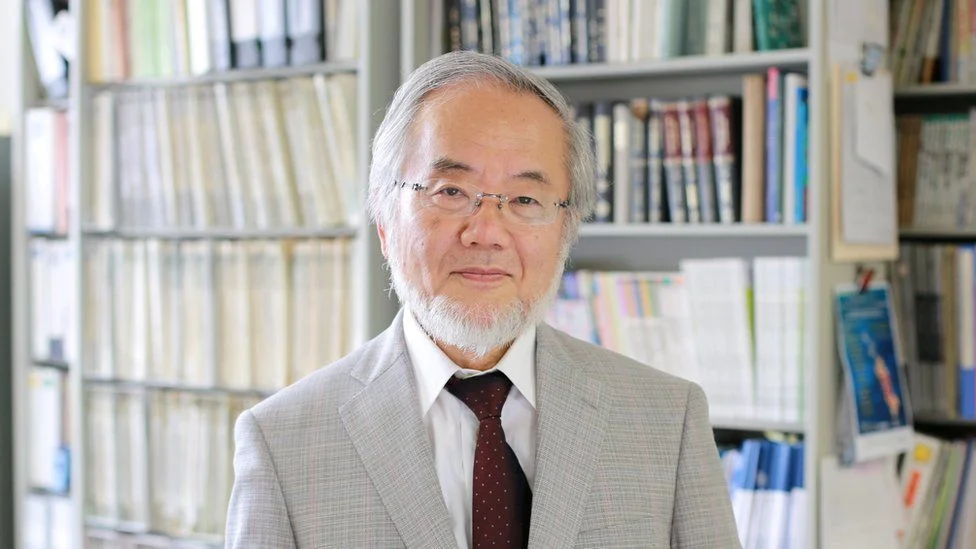Ekadashi or Fasting?

It is interesting to note that the theme of regularly restricting oneself in food in the tradition of various cultures and religions has been practiced for quite a long time. We can even say that it has been practiced for millenniums. For example, Christians have the well-known Lent, Muslims have Ramadan and As-Saum, Buddhists have Nyungnay, and Jews have Yom Kippur. Moreover, the actuality of this action is not that it has not faded with time, but, perhaps, even opposite, has gained wide popularity. Perhaps it is due to the fact that the benefits of periodic fasting are increasingly being scientifically confirmed, and therefore it is practiced not only from the point of view of religious prescription, but also for the purposes of banal health improvement.

“Autophagy is an integral part of adaptation to starvation and survival in all kinds of stressful situations” – Yoshinori Ohsumi, Professor, Nobel Prize-winning molecular biologist (Weekly Journal Profile, 4.02.2020).
For example, another boost to the popularity of fasting in the West came recently, in 2016, when Japanese molecular biologist Yoshinori Osumi was awarded the Nobel Prize in Physiology and Medicine. The Tokyo University of Technology professor has studied and outlined in some detail how, through the process of autophagy, cells are able to cleanse themselves by burning off the accumulated by-products of life: slags, toxins, and pathogenic bacteria and viruses. For fans of healthy lifestyle, the key factor in all this story is the fact that this autophagy process is activated in cells when the organism gets into conditions of unexpected stress, including fasting. It was laid down by nature with the purpose that in difficult times the organism could feed itself first of all at the expense of the accumulated surplus, old and diseased tissues and fat, extracting precious energy from all this. Experiments have shown that the process of autophagy in the brain of a mouse, for example, is observed after 24 hours of refusal of food, and in other organs even earlier. This means that, in fact, fasting is an effective tool for purification and recovery of the organism, as well as prevention (and possibly healing) of a number of diseases (studies on the same animals proved that if the autophagy process is started, the animals lived longer and were healthier in general).

“We found that it (the autophagy process) protects against diseases such as Parkinson’s, Huntington’s and some forms of dementia. The process also appears to help fight infection and inflammation,” David Rubinstein, Professor of Molecular Neurogenetics at the University of Cambridge and the British Dementia Research Institute (BBC NEWS/UK, 7.05.2018).
Based on such discoveries, in the circle of employees of the high-tech sector of Silicon Valley, formed a whole ideological movement and a number of start-ups promoting fasting as an effective means of improving the quality of life and formula for prolonging youth (for example, ProLon (from the word “longevity”) or biohacking company HVMN). Moreover, in the same group of advanced specialists in the state of California, to the fashion of food fasting, a new trend has been added – dopamine fasting. The main idea of this kind of recovery is that overuse of all kinds of joys of modern life (food delights, technology, social networks) leads to an increase in the level of dopamine in the body (neurotransmitter responsible for motivation and reward), which in turn reduces the sensitivity to these very pleasures. This is somewhat similar to the effect when an addict develops a tolerance to the drug over time, and in order to get the same pleasure as before, he has to increase the dose. The same story happens with our “harmless” pleasures – in order to keep our pleasure at the desired level, we have to constantly buy new gadgets, surf social networks, watch TV or play computer games.
As a result, addictions arise, at the same time reducing concentration, the ability to regulate emotions and enjoy simple things. In order to reduce the amount of dopamine in the brain, adherents of this trend try to keep themselves away from the usual “stimuli” for some time. For example, for a day or two they turn off the phone, avoid using a laptop, ignore other gadgets, and in general try to communicate less or spend time idly. Psychologist Cameron Sepa, who works with many clients in Silicon Valley, says dopamine starvation in his practice is a way to optimize the health and effectiveness of the senior executives and venture investors he works with.

“Dopamine starvation is based on a behavioral therapy technique known as ‘stimulus control’ that helps patients with addictions by removing triggers” – Cameron Sepa, psychologist (BBC NEWS/Russian Service, 23.11.2019)
So, fasting, avoiding parties, gadgets and unnecessary conversations. Let’s put these newfangled trends together and add some spiritual practice. What do we get? Right, the same classic fasting, which, as we said earlier, without any scientific discoveries and justifications, in completely different cultures of the world has been practiced since the beginning of time. Perhaps our wise ancestors knew about all these beneficial properties from the beginning? Curious, isn’t it?
Today I would like to share one of such ancient methods of fasting, which is widespread in Eastern culture, among adherents of Hinduism, Vaishnavas and yogis. We are talking about the so-called Ekadashi (Sanskrit eleven – “eka” one, “dasha” ten) – fasting, which by its name symbolizes the eleventh lunar day. Besides the obvious physiological benefits for both the body and the psyche, the effect of Ekadashi is justified from the astrological point of view. Though modern science does not recognize astrology in general, the influence of the Moon phase on the movement of water on Earth is officially proven (tides) and is explained by the change of gravitational force between the planets (due to the ellipsoidal trajectory of the Moon). And since humans are mostly composed of liquid, it is assumed that the influence of the Moon is also reflected in their biorhythms – emotions, motivation and as a consequence, behavior.
The sages of the past authoritatively stated that during Ekadashi days (i.e. 11th and 26th lunar days) the human psyche is under particular strain. It is noted that a person with a weak character, i.e. a weak-willed person, may succumb to passions during these days, letting his vital energy go to the desire to enjoy and exploit his surroundings for his own purposes. And this, in turn, inevitably leads to rash actions, causing offense to loved ones and creating various kinds of trouble for themselves and others, in other words – forming a bad karma. In order to protect oneself from such risks, during Ekadashi days it was suggested to limit the consumption of food (i.e. the source of energy), idle pastime (the source of energy spending) and to turn one’s attention from material to spiritual.

“… if anyone fasts on ekadashi, I will burn all his sins and grant him My transcendental abode.” Sri Krishna (photo: frame from the movie “Mahabharata”)
Ekadashi practice is well suited for both severe ascetics and less prepared spiritual seekers, as it is carried out with different levels of difficulty. At a simple level it is suggested to give up only meat, fish, eggs and legumes (except buckwheat, which is not considered a grain from the point of view of Ayurveda). If such a fast is tolerated easily enough, one can go further by giving up sesame seeds, honey, eggplants, onions, garlic, sea salt and mustard. In this case, it is recommended to eat no more than twice a day, ideally one, as food is too grounding and distracting from spiritual development. The most experienced practitioners refuse to eat at all during these days, i.e. they fast on water or even “dry”. In the last two cases (i.e. fasting on water or without it), in addition to abstaining from food, in order not to harm one’s organism, it is extremely important to follow the correct beginning and exit from this process. Below we have given some recommendations that will help you to conduct a strict Ekadashi without harming your health:
- The day before the fast it is better not to overload yourself with excessive consumption of food (i.e. do not overeat), as well as to replace the use of heavy, hard-to-digest foods (meat, fish, eggs, cheese) with lighter ones (vegetarian diet – vegetables, fruits, cereals). Then, by the beginning of the feast, your body will have time to eliminate most of the toxins and toxins outside and you will not suffer from headaches during the fast.
- During fasting, try to moderately distribute physical activity – you should not do nothing at all, but you should not take on all the accumulated household or work tasks at once either.
- It is important to remember that Ekadashi is not just a refusal of food as a health improvement, but a spiritual practice, during which a person strives for an elevated, deep perception of the subtle world, knowledge of oneself, service to the Universe. Therefore, on this day, in addition to food, it is recommended to give up professional activities (if possible, of course), everyday business and hassle, paying attention to any acceptable for you spiritual practice, in the case of yoga – meditative techniques. Also, it is not recommended to spend time in idle fun, watch movies, excessively (without necessity) use gadgets.
- From the physiological point of view, the main criterion for successful fasting is your good health. If you feel serious indisposition, a serious drop in blood pressure, dizziness or something else unusual, it is better to interrupt this procedure, starting a smooth exit.
- The exit from Ekadashi usually begins about 36 hours after the beginning ( meaning that the fast lasts two nights and one day) and the timing is determined differently for each region (there are calendars on the Internet, subscribing to which you can get notifications to your mail in advance).
- At the end of fasting it is important not to give in to the impulses of your uncontrollable desires and not to pounce on food, overfilling your stomach. If you fasted without water, then the exit for you begins with filling the body with warm (about 38 degrees) water (at least 0.5 liters). After thirty minutes or even an hour, you can allow yourself some food – for example, a small plate of boiled rice (on water, without salt and butter). After that, at least another hour later (or longer, but not earlier), you can eat, for example, a banana. Then, again, not earlier than an hour later, raw vegetables and/or fruit are suitable. Thus, closer to the evening you can already afford to eat soup or something hot for a second course. But still, on this day it is better not to eat heavy foods (meat, fish), leaving them for day two (if they are present in your diet at all). Also, after exiting Ekadashi, you should not load your body with heavy physical activity, giving yourself some time to adapt and get into the daily pace.

In addition to all the positive physiological effects of fasting (triggering the autophagy process, regulation of dopamine, etc.), regular Ekadashi, from the spiritual point of view, contributes to the so-called “burning of karmic tails” (i.e. the experience of predestined suffering and limitations) and increasing spiritual wisdom. All existing dissatisfaction with life will instantly disappear, because for complete happiness now you will only need a couple of spoonfuls of lean buckwheat porridge. All whims, excesses and uncontrollable desires will fall into the distant background. Happiness is here and now. You don’t need to go anywhere far for it and spend a lot of money for a foreign vacation. At the end of the fast, having realized a smooth exit, you will feel an incredible burst of strength and determination for new accomplishments. At this point, nothing will be impossible for you. Besides, it is believed that during Ekadashi days the higher powers become closer to a spiritually enlightened person, which means that your sincere aspirations for spiritual growth on this day will find an unusually strong response.
Contraindications to strict fasting:
- acute period of chronic diseases of the digestive system;
- oncology, tuberculosis;
- heart disease;
- diabetes of any type;
- period of immunosuppression;
- pregnancy, lactation in women;
- children under 12 years of age;
- Older than 65 years of age (exceptions may apply);
- weight deficiency;
- The presence of psychological disorders and a period of deep depression.






Responses